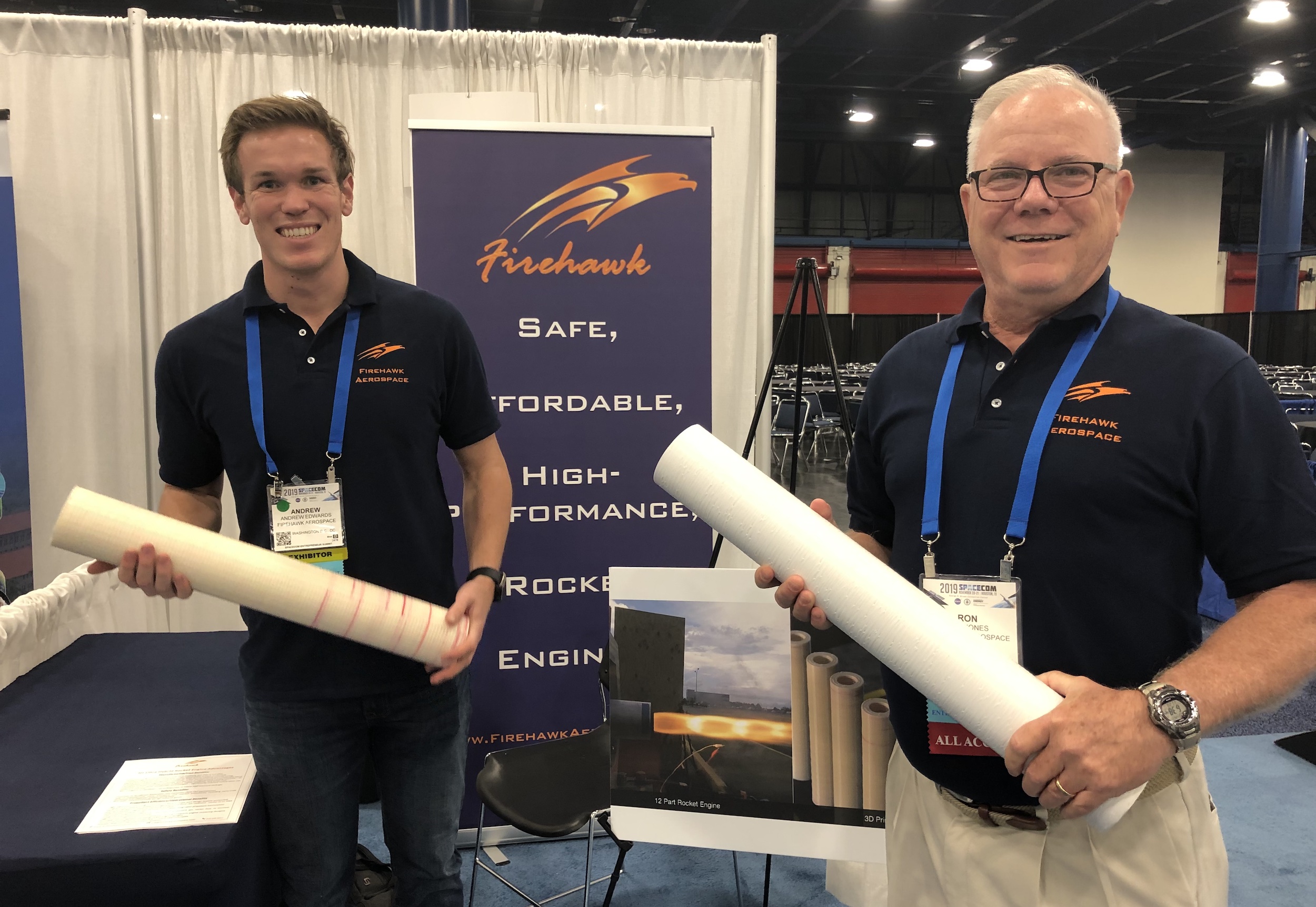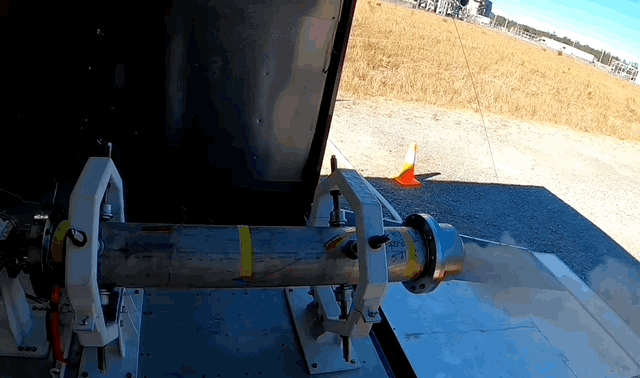Although today’s rocket engines are advanced and powerful, they tend to rely on traditional — and naturally volatile — fuels. Firehawk Aerospace has a safer and more stable new solid fuel, new engines, and millions in new funding to take it through the next round of tests to its first in-atmosphere demonstration launch.
Firehawk appeared on the scene two years ago with a fresh take on hybrid engines; the breakthrough made by CEO Will Edwards and chief scientist Ron Jones was to give that fuel a structure and 3D print it in a specially engineered matrix.
The structured, solid fuel grain is more stable and easier to transport than other fuels, and burns in a very predictable way. The company designed engines around this concept and tested them at smaller scales, though they have also been working on the kind of engine you might actually use if you were going to space. But the company has said that one of the strengths of the system is its adaptability.
“It’s a unique engine with its throttling ability, low cost of manufacture, and a parametric design, so we can design for a missile interception system or second stage booster,” said Edwards.
In addition to better safety, printing the fuel grains differently makes it possible to create different thrust characteristics. And the whole thing can be safely slowed, stopped and started again multiple times. Though this is often the case with liquid rocket engines, it isn’t with solid ones: they blast at 100% until they run out of fuel, meaning you only get one shot at it and your options for force vectors are limited — more like a drag racer than a normal car.

“Our engine can replace solid rocket motors with something significantly lower cost, on par with fuel performance, but you can control its burn — that’s something the industry finds incredibly compelling,” Edwards noted. The need for solid motors in defense and research is steady, and the improved customizability and other characteristics make Firehawk an attractive alternative for missions with varying requirements.
The company recently performed engine burn tests at Stennis Space Center with NASA supervision, and they’re ready to fly — the last step before reaching a technology readiness level that would permit the company to step up its revenue.

In addition to second-stage boosters and missile interception systems, Edwards also suggested in-space propulsion like satellite maneuvering as a potential application. Due to the volatility of fuels among other things, more low-impulse methods like ion engines are often used. Firehawk’s fuel is “inert by nature,” making it a lot less of a liability in, for example, a multipayload launch. Would you want your satellite stored next to a barrel of kerosene?
There’s no plan to make launch vehicles or anything like that — Firehawk is strictly engines, with no aspirations to making satellites or any other spacefaring or airborne items. They just provide the thrust, and upcoming in-atmosphere demonstrations would show off the capabilities for sub-orbital operations.
The new Series B funding round will enable more tests, more R&D, and the production of more engines to meet demand — though predictably with a company working with the likes of Raytheon, NDAs prevent the nature of that demand from being described with any specificity. They’ve raised $15.5 million so far but are expecting to close at $17 million shortly.
The list of funders is a bit long, but for the record: Star Castle VC led the round, with participation from Raytheon, Draper & Associates, Goff Capital, Cathexis Ventures, Plains VC, Victorum Capital, Stellar VC, Capital Factory, Echo Investments, and Hemisphere Ventures.
Although the engines currently being tested are nearly ready for use by customers, Edwards stressed that this is just the start. New applications are potentially just a few keystrokes away:
“We can create really unique fuel grain geometries, and by changing the design we can improve its performance. It’s just a matter of rewriting some code and uploading that to our 3D printers,” he said, adding that the new funding has let them buy and customize their own printers, CNC machines, and test setups for deployment in a new Addison, Texas, location. “We’ll be able to move through our next test campaign much more quickly.”
Here’s the happy team at the new space:

More tests should be coming next month, which should clear the way for a launch of some kind in the near (but still unspecified) future.
(An earlier version of this story more directly compared the capabilities of Firehawk’s engines to those of first-stage launch engines, but that’s not really the market; solid rocket motors are what the company aims to replace with its approach, though launch vehicle engines could happen in the future.)































Comment